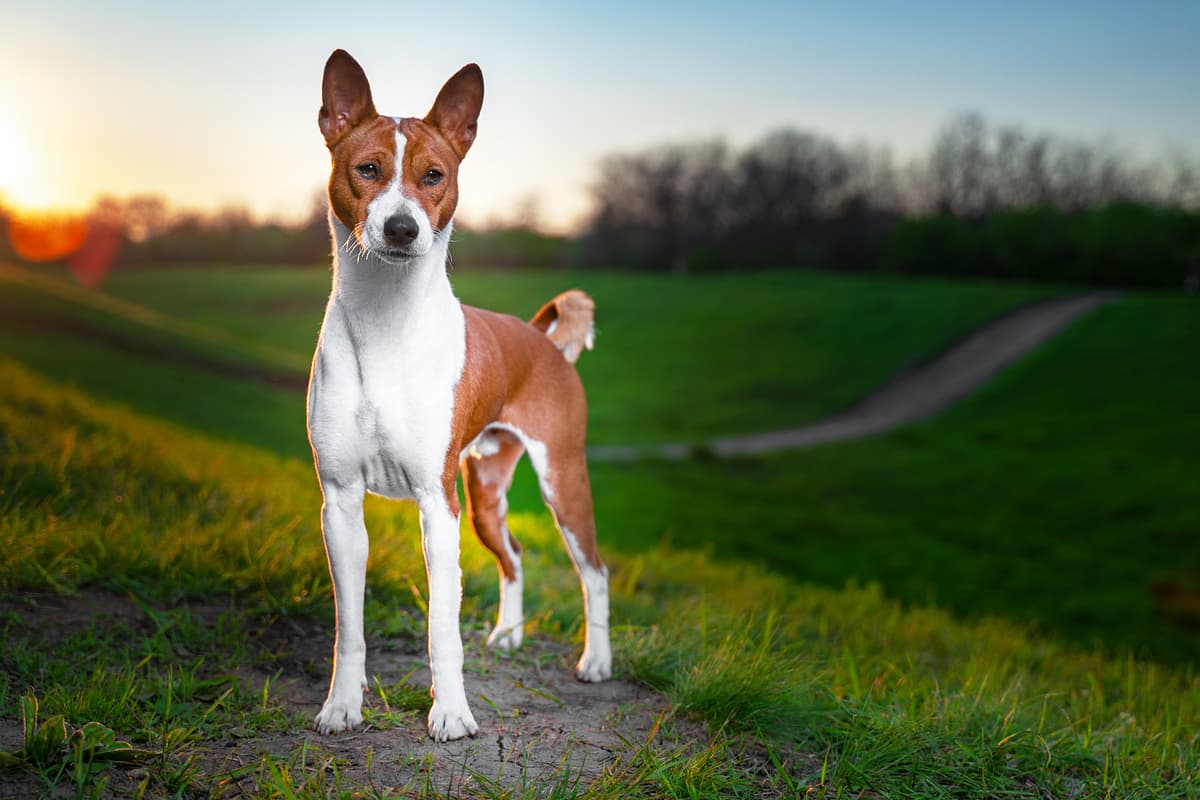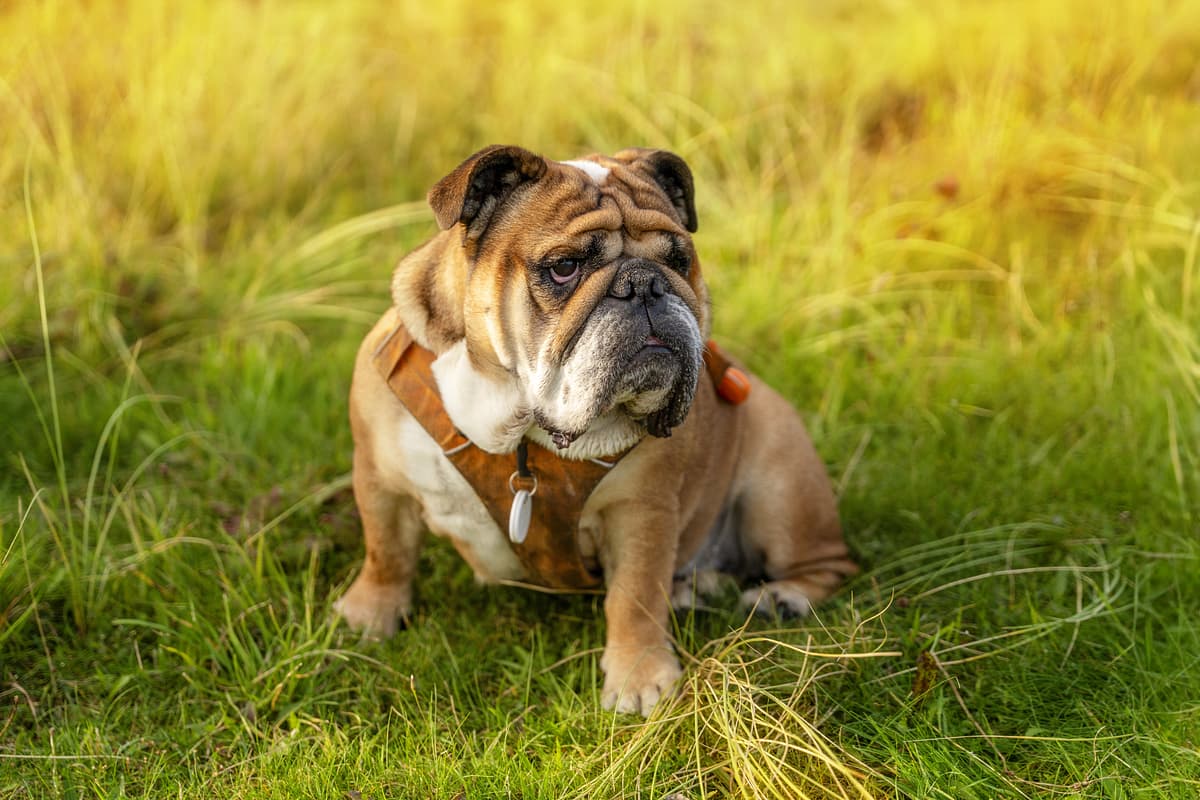Basenji vs English Bulldog
Discover the differences between Basenji and English Bulldog to make the best choice for your situation.
Try different breeds

Basenji
Alert, independent, and elegant, this breed is famous for its quiet nature and expressive face. Known for being affectionate yet cat-like, it thrives with active families.

English Bulldog
Stocky, courageous, and affectionate, this breed charms with its wrinkled face and calm nature. Loyal and gentle, it thrives as a loving family companion.
Quick comparison
Medium
10–12 kg
Short, fine
12–16 years
9–11 kg
High energy
Medium
23–25 kg
Short, smooth
8–10 years
18–23 kg
Low activity needs
Personality & behavior
Compare the personality traits and behavioral characteristics of both breeds.
Basenji
Can be aloof, bonds closely with family
Learns quickly, enjoys mental challenges
High stamina, active throughout the day
Enjoys interactive games and chasing
Adjusts moderately to new environments and changes
English Bulldog
Affectionate and gentle with family and children
Learns basic commands with some patience
Prefers lounging over vigorous physical activity
Enjoys play but tires fairly quickly
Adjusts well to most living environments
Care needs
Exercise, grooming, and daily care requirements
Basenji
Fanconi syndrome, progressive retinal atrophy
English Bulldog
Brachycephalic syndrome, skin fold infections
Suitability
How well each breed fits different living situations and families
Basenji
Requires experience
Basenjis can be stubborn and independent, posing challenges for novice owners.
Moderately suitable
Small size fits apartments, but they need daily exercise and mental stimulation.
Great fit
Basenjis thrive with active owners who can meet their exercise needs.
Use caution
Their high energy and excitability may overwhelm very young children.
Mixed compatibility
They can be territorial and may not get along with other pets, especially small animals.
Not recommended
Basenjis can become destructive or vocal when left alone for extended periods.
English Bulldog
Good option
Easygoing, low-maintenance nature suits owners with limited dog experience
Excellent fit
Moderate exercise needs and calm demeanor work well in small living spaces
Not ideal
Low stamina and breathing issues make them unsuited for high-activity lifestyles
Very suitable
Gentle, patient, and tolerant with young children when properly socialized
Usually compatible
Generally sociable but may need guidance with other pets, especially dogs
Not recommended
They struggle with long periods alone and are prone to separation anxiety
Breed strengths
What each breed excels at and their best qualities
Basenji
- Cleans themselves like cats
- Minimal doggy odor
- Intelligent and quick learner
- Agile and athletic build
- Low-shedding coat
English Bulldog
- Affectionate with family members
- Generally good with children
- Low exercise requirements
- Minimal grooming needs
- Adaptable to apartment living
Challenges & considerations
Potential challenges and considerations for each breed
Basenji
- Can be aloof with strangers
- Strong prey drive toward small animals
- Prone to boredom if under-stimulated
- Difficult to train off-leash recall
- May be destructive when left alone
English Bulldog
- Prone to respiratory problems
- High risk of overheating
- Susceptible to skin infections
- Can be stubborn during training
- Tends to drool frequently
Ready to choose your perfect breed?
Learn more about each breed or compare other breeds to find the perfect match for your lifestyle.
Discover more helpful tools
Make use of our other free tools to get the most out of your pet experience
